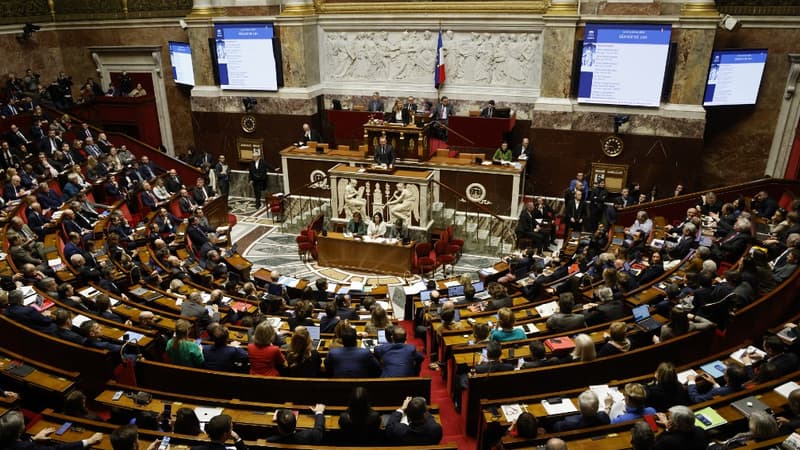Promised thing due thing. After the government activated article 49.3 on Thursday to approve its pension reform without the vote of the deputies, a first motion of censure was announced by the National Association. Two others could calmly present themselves. One by the rebels, and the other, called transpartisan, bringing together in particular the deputies LR, LIOT.
Control weapon for parliamentarians, this provision can, if adopted, lead to the resignation of the government, and in this case to the rejection of the bill. However, the President of the Republic can maintain his confidence in his Prime Minister.
An almost impossible mission
While speculation abounds, there remains a government overthrow hypothetical. Indeed, it is necessary to obtain the votes of the absolute majority of the members of the National Assembly (currently 287) for the motion to take effect.
In other words, an almost impossible mission for the oppositions. In addition, although the majority of the presidential field is only relative, all the attempts of the left and the extreme right have failed since the beginning of the new legislature.
A single precedent under the Fifth Republic
Proof of the difficulty of the undertaking: only one vote of no confidence has been approved in the history of the Fifth Republic. If the example, which dates from 1962, is getting old, it is still illuminating. In particular with regard to the response of the then President of the Republic, General de Gaulle.
That year, the latter announced his desire to submit a constitutional review to a referendum. It is then a matter of reforming the presidential election. Elected until now by the voters -deputies and senators-, the head of state now wants to seek the approval of the people and establish direct universal suffrage. Consequence: parliamentarians would lose their influence.
Dissatisfied, many of them voted in favor of a motion of no confidence on October 5, 1962. Result: 280 votes in favor, or 39 more than the required majority at the time. In the process, Prime Minister Georges Pompidou resigned from his government.
To oppose the motion of censure, the President can dissolve the Assembly
But the executive is not helpless. He counterattacks. Charles de Gaulle uses his powers as president to dissolve the National Assembly on October 9. While waiting for the new legislative elections, he maintains his confidence in Matignon.
By the end of November, the score was final: the Gaullists won around 40% of the seats. Georges Pompidou is confirmed in his functions. The effects of the motion of censure expire.
“I dissolve right away”
The situation is reminiscent of another. At the beginning of September 2022, Emmanuel Macron ruled on the motions of no confidence. In case of 49.3 on the pension reform, the elected representatives of the National Rally (RN) like those of La France insoumise (LFI) threatened to present one.
In response, the President of the Republic had shown his muscles during a meeting with the heavyweights of his majority, evoking a possible dissolution of the National Assembly. “I don’t want shit. If a vote of no confidence passes, they all go back to campaigning,” he said.
He brandished this threat again on Wednesday, hinting that he might dissolve the lower house, in the event of an unfavorable vote on the government bill.
But could the head of state still afford it today, after a forced approval of a reform largely rejected by the French?
Source: BFM TV


